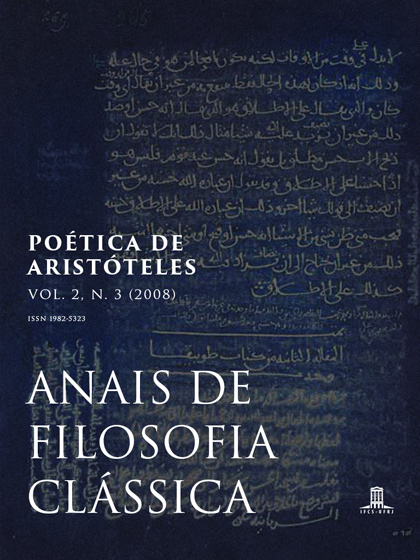O melhor tipo de mito trágico: o argumento de Aristóteles em Poética 13-14
DOI:
https://doi.org/10.47661/afcl.v2i3.17008Palavras-chave:
Poética de Aristóteles. enredo trágico. hamartía.Resumo
Resumo:
Nos capítulos 13 e 14 da Poética, Aristóteles discute o melhor tipo de enredo trágico. Em ambos os capítulos, a análise repousa na premissa de que enredos trágicos devem representar eventos que evoquem piedade e medo. De todo modo, os dois capítulos chegam a conclusões que são, geralmente, vistas como inconsistentes. Neste artigo, tentarei mostrar que é possível entender os dois capítulos como um argumento simples e coerente caso atentemos ao contexto polêmico que influencia o caminho no qual ele desenvolve seu argumento, e às partículas conectivas que articulam sua estrutura lógica.
Palavras-chave: Poética de Aristóteles. enredo trágico. hamartía.
Abstract:
In chapters 13 and 14 of the Poetics, Aristotle discusses the best kind of tragic plot. In both chapters the analysis rests on the premise that tragic plots should represent events that evoke pity and fear. However, the two chapters reach conclusions which have generally been seen as inconsistent. In this paper, I shall try to show that it is possible to understand the two chapters as a single, coherent argument if we pay careful attention to the polemical context which influences the way in which he develops his argument, and to the connective particles which articulate its logical structure.
Keywords: Aristotle's Poetics. tragic plot. hamartía.


